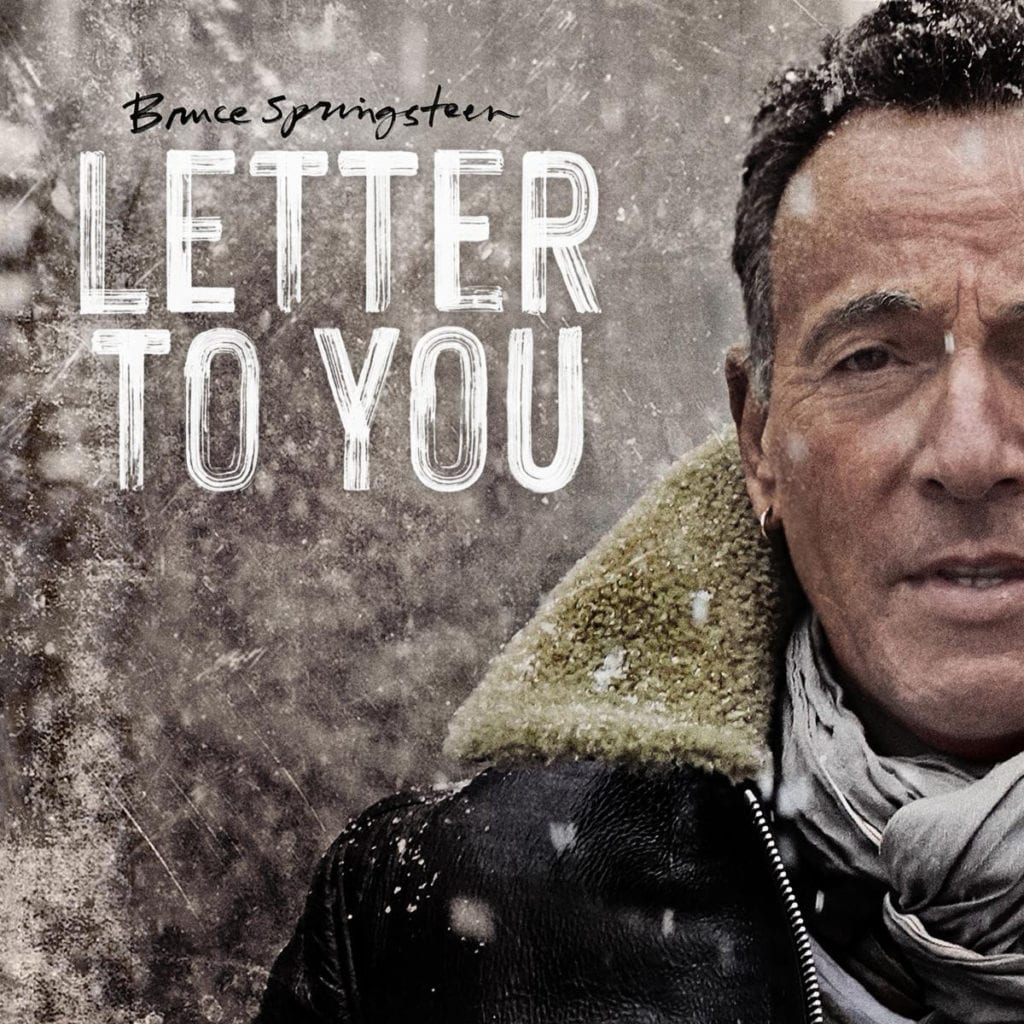With E Street Band, Springsteen Puts Love and Rock into ‘Letter to You’

Whenever times get tough, Bruce Springsteen summons the E Street Band. Turning up, tuning up, and rocking out like a celebratory army, the E Street Band has always been able to kick the daylights out of the darkness with a sound that comes as close to pure joy as a rock and roll band can muster. That distinctive wall of sound is as much about Roy Bittan’s masterful piano playing, Max Weinberg’s pounding propulsion, and that wailing saxophone — now belonging to The Big Man’s nephew, Jake Clemons — as it is The Boss’s voice and songs. As they did with The Rising, the E Street Band is back to give us hope and perspective in a seemingly hopeless time.
Where last year’s Western Stars was lush, subdued, pensive, the new album, Letter to You, sounds and feels rejuvenating, a fist-pumping testimony to the power of dreams, tenacity, love, and, of course, rock and roll. It also plays as a song cycle of music as a spiritual healer, something Springsteen has preached from the pulpit of the stage, with the E Street Band acting as his apostles, for over 45 years.
The testimony has added significance on Letter to You, as it’s a love letter not only to Springsteen’s fans, but also to George Theiss, his lifelong friend and bandmate in Springsteen’s first group, The Castiles. Theiss passed away in 2018, leaving Springsteen the last man standing from that band. Such an event leaves an impression, a feeling of obligation. He felt the E Street Band could carry out such a directive: to deliver this set of songs with power and love like no one else could.
They set about recording the album completely live from the floor. (They’d only attempted that twice before, on the songs “Darkness on the Edge of Town” and “Born in the U.S.A.”) Each song, from rehearsal to finished product, was given a three-hour limit. They recorded two a day. After four days, the album was done.
The new songs here all point to the past. Not with nostalgia, but with reverence and appreciation for what the past has taught and how it has informed his, and our, present. Springsteen knows that his fans have been with him a long time, and the beauty of Letter to You is that he brings us along as passengers on his lifelong journey as he searches for the spiritual power of prayer through song.
He even digs back into his vast archives of demos for three songs he’s never released, originally recorded almost 50 years ago when he auditioned for the legendary talent scout John Hammond. Recorded fresh with the E Street Band, these songs are given a deeper context through the mystic weight of time.
“Janey Needs a Shooter” may be the best known of the three, if for nothing else than for Warren Zevon taking the title and writing his own version (at Springsteen’s urging) for his album, Bad Luck Streak in Dancing School (there titled “Jeannie Needs A Shooter”). Both versions occupy their own space and succinctly encapsulate the artist that brought them to life.
“If I Was a Priest” will revitalize your love of rock and roll. Written even before the songs that make up Greetings from Asbury Park, it (along with the wonderful “My Back Pages”-inspired
“Song for Orphans”) perfectly summarizes the era when Springsteen was being touted as the “new Dylan.” Now with the stamp of the E Street Band, the song blasts forth like a lost gem from the Rolling Thunder Revue, with Little Steven’s string-strangling solo on the fade sealing the deal.
For “Priest” to be placed next to “Ghosts” is inspired sequencing. “Ghosts” acts simply as a love letter to rock bands, past and present. To the E Street Band, of course, and The Castiles, but also to every band that’s ever loaded in more pieces of equipment than there were people in the crowd yet gave their all anyway when it came time to plug in and turn up. The entirety of Letter to You is for them, and for everyone that is moved by the unexplainable, undeniable power of music.




